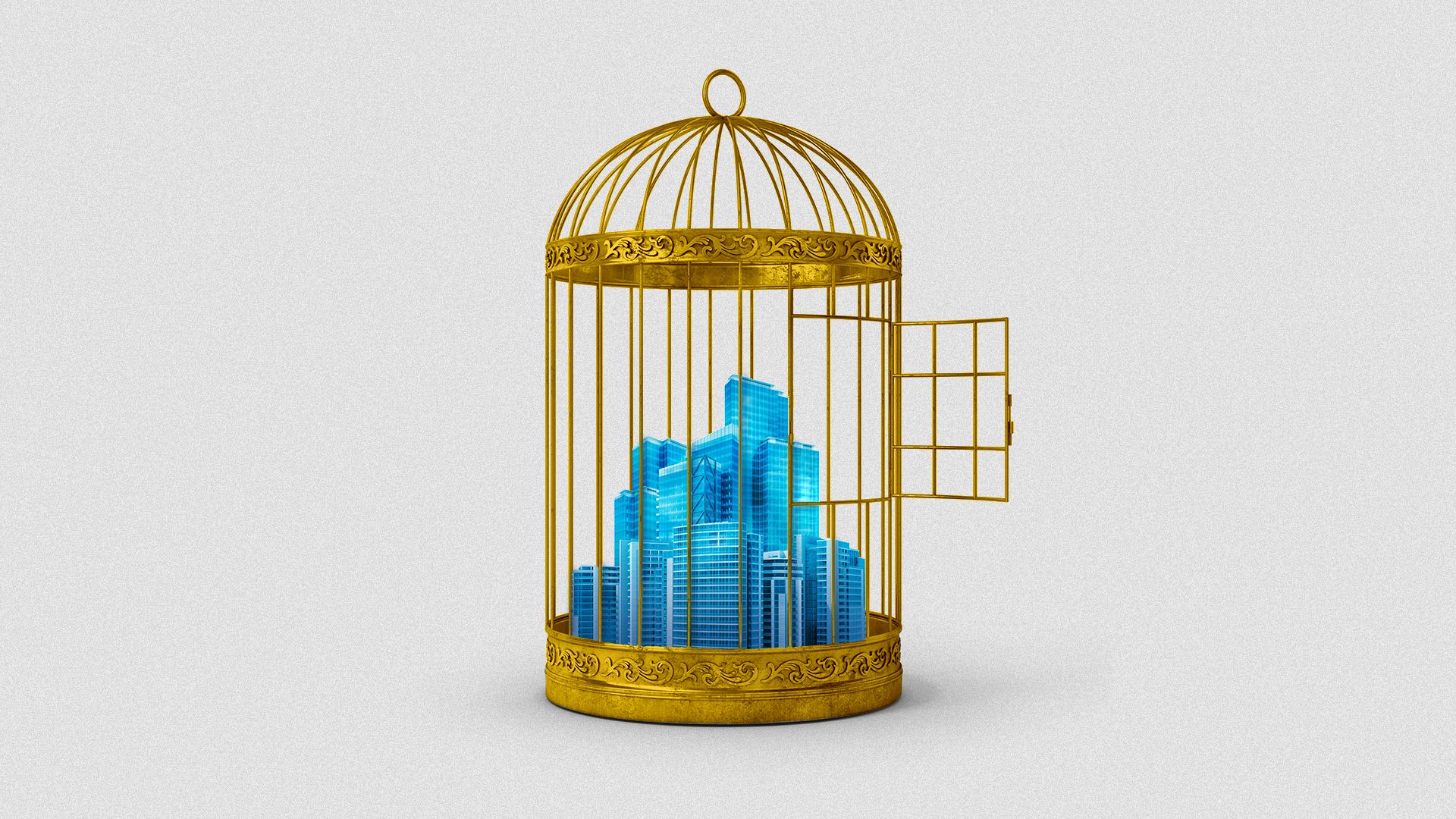Choice to pay ransomware might be simpler than you'd think
Add Axios as your preferred source to
see more of our stories on Google.

Illustration: Aïda Amer/Axios
The conventional wisdom about ransomware is that when local governments pay the ransom, it encourages more criminals to launch more attacks. But that's not necessarily the case, experts say.
Between the lines: The costs of recovering from a ransomware attack are often greater than the cost of the ransom.
Background: The victims of ransomware attacks are typically targets of opportunity, and cities generally aren't the primary targets. Corporations are — and they often pay up.
- "The fact is, paying a ransom does not create a market," said Forrester Research's Josh Zelonis. "There already is a market."
By the numbers: Riviera Beach and Lake City, Florida, paid a combined $1.1 million in ransom over about a week in June.
- Meanwhile, Atlanta spent $17 million restoring systems rather than pay a $50,000 ransom last year.
- Baltimore is likely to spend $10 million restoring its own systems refusing to pay a $75,000 ransom this year. The disruption to its city services may cost another $8 million.
The intrigue: For some cities, the best response might be to pay the ransom, then use the millions of dollars that would have been spent on recovery to strengthen cyber defenses before the next attack.
- "If you don't learn from the past, you will end up being ransomed again," said Deborah Golden, the new head of Deloitte's cyber consultancy.
- Whether a city pays, doesn't pay or has yet to be attacked, prevention will often save money.
What's next: Regardless of the decision a city might make, Golden said, it's important to game plan what will happen in a ransomware attack.
- In some cases, that might mean developing non-digital alternatives to the services that may be put on hold during an attack. "Is there a way to do something manually in the time it takes to set up the automation again?" she asked.
